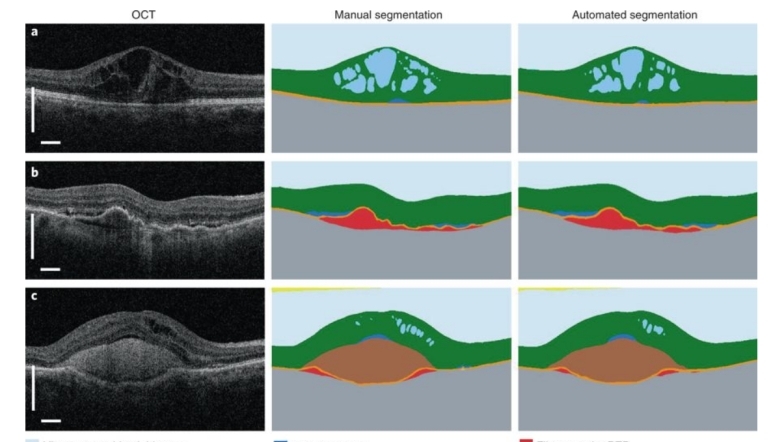
Jul
The eye is the window to the soul
The eye may be a window to the soul and, with the aid of OCT it seems it can also be a window to the mind; at least if recent research by a team from UCL Institure of Ophthalmology is to be believed.
Research
In a study of 32,000 people between the ages of 40 and 69 the researchers found that those with the thinnest retinas - in particular the RNFL - measured on OCT were 11% more likely to fail memory and reasoning tests designed to check for memory loss, difficulty with familiar tasks and other signs of cognitive dysfunction. They were also twice as likely to have reducing follow-up scores over the following three years. Evidence, say the researchers, of cognitive decline.
A link between the health of the retina/optic nerve and the brain is already well known and is thought to be linked to changes in neural microvasculature that often occur in both structures at the same time. But this research is the first study to suggest changes can be spotted in such an stage of cognitive decline. According to Dr Laura Phipps from Alzheimer's Research UK, "future treatments for Alzheimer's and other dementias are likely to be most effective when given early in the disease process, so research into sensitive and non-invasive early markers of disease is vital."
Prof Paul Foster, co-lead author of the paper, said OCT tests could be used by opticians to help identify people at high risk of developing the disease. Others argue that the tests should not be done in isolation to screen for dementia. Many people with thinner retinas do not go on to experience cognitive decline and so any tests are likely to produce a high rate of false positives.
Everyone seems to agree though that further studies should be carried out to look at how sensitive OCT could be at identifying those most at risk of cognitive decline in the general population.


Comments
No comments have been added yet.
Please log-in to post a comment.